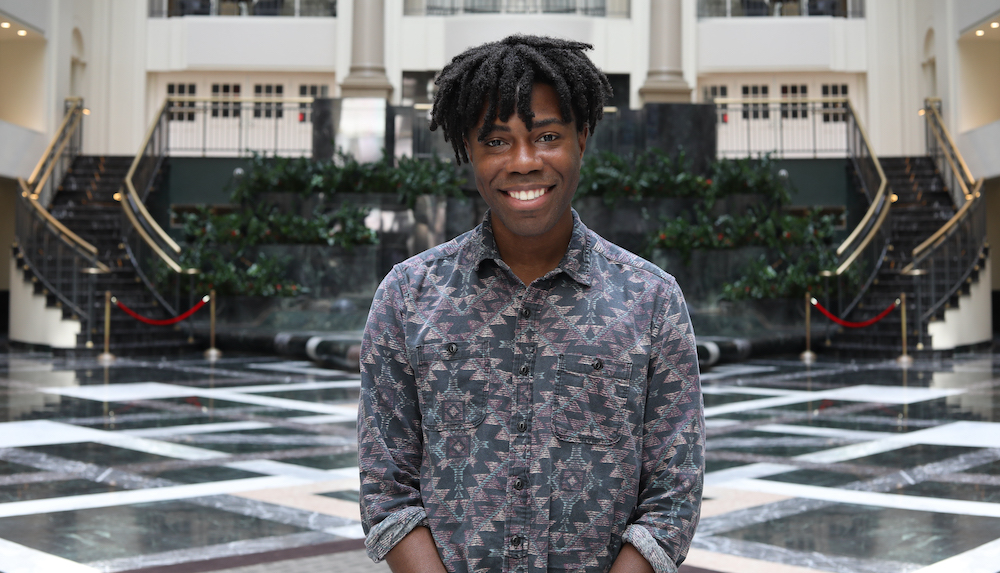With a $6.3 million proposal to the City of Baltimore for American Rescue Plan Act (ARPA) funds, the Enoch Pratt Free Library is laying out a plan for a host of initatives designed to best position libraries as anchors of digital equity in communities.
Among the many COVID-19 relief bills passed over the last two years, this year’s American Rescue Plan Act allocated $1.9 trillion, including $65.1 billion allocated for cities. This provided Baltimore City with $641 million. After laying out a priority list that included broadband and small businesses, Mayor Brandon Scott has started to announce the City’s first investments with that money.
Per publicly available info, the City has allocated $181 million in funding so far. The big investments so far have included $80 million over four years to the Baltimore City Health Department, $50 million over the next three years to the Mayor’s Office of Neighborhood Safety and Engagement and $51 million used to close a budget shortfall.
With its proposal for about 1% of the city’s ARPA funds, the library system hopes to turn a ten-year plan of revamps, centered around providing internet connectivity, digital literacy and addressing the city’s digital divide, into a two-year plan.
“The federal rescue plan funding is a once in a lifetime opportunity to invest in library infrastructure,” said Meghan McCorkell, director of marketing and communications for the Enoch Pratt Free Library.
The proposal has been submitted and the library received feedback, but the mayor’s office has yet to announce whether the proposal has been accepted.
With the funding, the Pratt would do the following:
Rework library computer spaces.
The library system is exploring a way to offer open workspace.
“We’re taking at look at what our computer labs could look like if we converted them into a more one-on-one environment or coworking space,” said McCorkell. “We could make a national model of what computer spaces and libraries could look like. If people can’t afford a coworking space they should still have a nice professional place they can go to work in the public libraries.”
Introduce digital navigators.
Under the plan, the library system would create the new staff position of digital navigators for each of the 22 branches. These professionals would be dedicated to providing free one-on one tech support.
It’s a national model and framework that provides the community with a dedicated staff person to teach residents how to use critical online services that provide guidance with food support, rent, education, employment, childcare and government benefits. Philly has its own version of it with the Digital Literacy Alliance, and Texas has recently used the ARPA money to provide digital navigators to every library in the state.
It accounts for a key piece of digital equity for residents: digital literacy.
“We can give them access to technology but we really need to help them learn how to use that technology and help troubleshoot,” McCorkell said.
Expand internet connectivity resources.
This part of the proposal calls for an expansion of the extended Wi-Fi initiative, called Drive-In Wi-Fi, that the library system launched in the pandemic to provide connectivity in the areas surrounding its buildings. It is already available at eight library brances. Under this proposal, it would expand to all 22 branches. Additionally, the library would create outdoor reading spaces and buy more equipment to service residents with its laptop and mobile hotspot loan program.
Open teen tech centers.
This part of the proposal calls for the creation of two tech centers for teens that would be outfitted with 3D printers and audio-video recording equipment. One would be on the east side of Baltimore, while the other would be in West Baltimore.
“It opens up a world of technology,” said McCorkell. “I can’t afford to have a 3D printer in my house, but if you can go to the library and use the latest, greatest 3D printer and have that knowledge, we think it really opens doors for teens.”
Check out the full digital inclusion initiative proposal below:
[googleapps domain=”drive” dir=”file/d/1FDTP7LYpMrqpek3Yj5gwSupA8AuWWbBT/preview” query=”” width=”640″ height=”480″ /]
Donte Kirby is a 2020-2022 corps member for Report for America, an initiative of The Groundtruth Project that pairs young journalists with local newsrooms. This position is supported by the Robert W. Deutsch Foundation.Join the conversation!
Find news, events, jobs and people who share your interests on Technical.ly's open community Slack

Baltimore daily roundup: Medtech made in Baltimore; Sen. Sanders visits Morgan State; Humane Ai review debate

Baltimore daily roundup: The city's new esports lab; a conference in Wilmington; GBC reports $4B of economic activity

Baltimore daily roundup: Find your next coworking space; sea turtle legislation; Dali raided and sued


